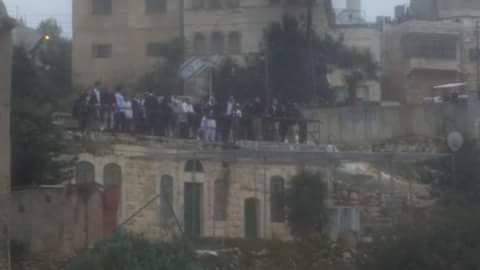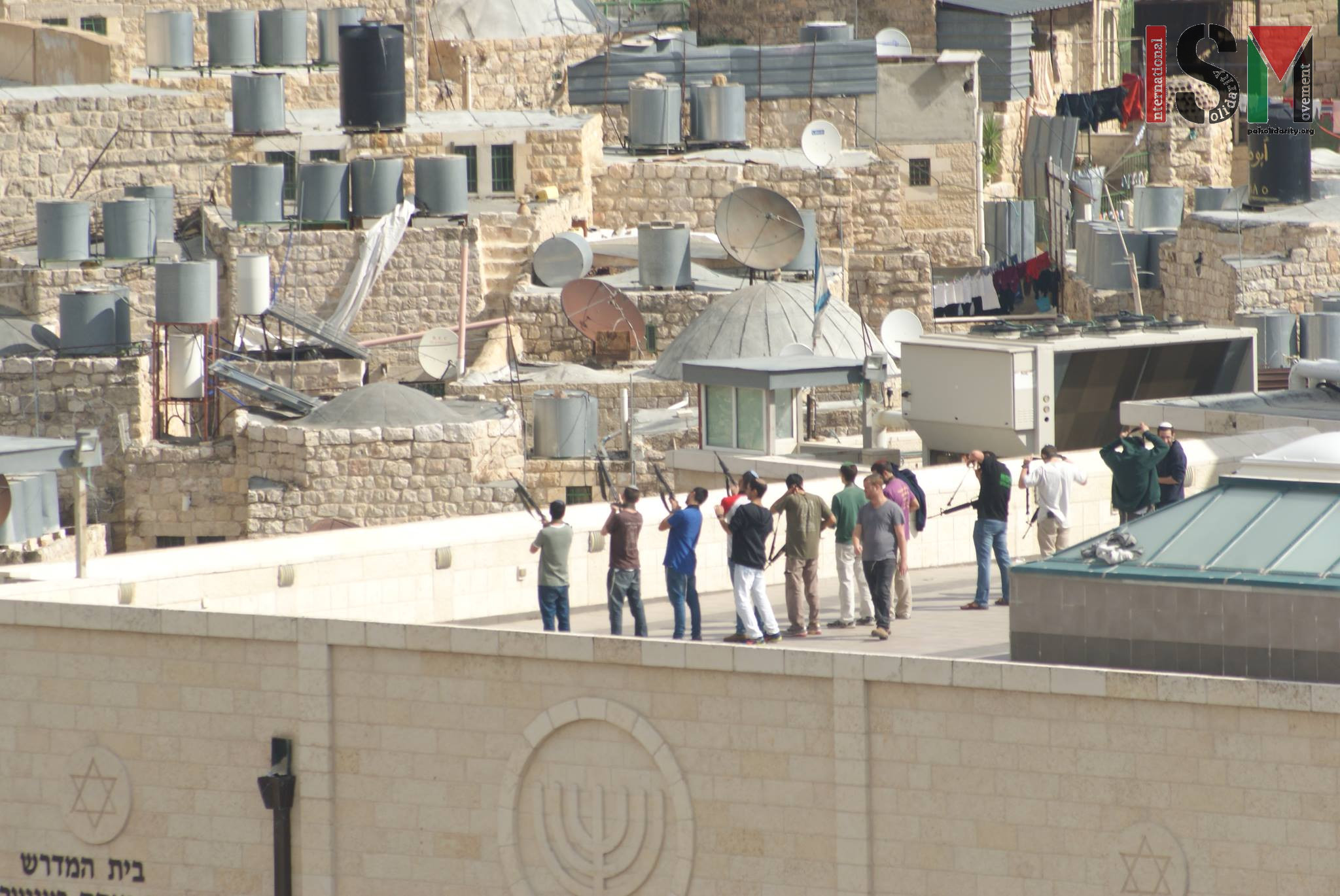Tag: Settler violence
-
“When soldiers see a camera they come to you like a beast”
16th November 2015 | International Solidarity Movement, Al-Khalil team | Hebron, occupied Palestine Since the beginning of October Israeli soldier- and settler violence has increased sharply and resulted in even further restrictions on Palestinians’ everyday lives in occupied al-Khalil (Hebron). Imad Abu Shamsiyyeh, a volunteer with the Palestinian organization Human Rights Defenders, has been documenting…
-
Settler gun training on roof overlooking school : this is how they teach hate
11th November 2015 | International Solidarity Movement, al-Khalil Team | Hebron, occupied Palestine This morning, for four hours from 9am to 1pm, a group of Israeli Settlers were training on the rooftop of the illegal settlement building, Yona Menachem Rennert Beit Midrash, on Shuhada street. An instructor taught them how to hold a gun properly…
-
Israeli forces continue to arbitrarily declare ‘closed military zones’ around al-Khalil (Hebron)
9th November 2015 | International Solidarity Movement, al-Khalil Team | Hebron, occupied Palestine On November 7th 2015, the Abu Rajab family in occupied al-Khalil (Hebron) received a military order by the Israeli forces declaring most of their house of being under military control for an indefinite time. The house is right on the corner of…



